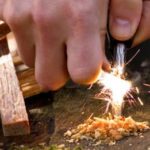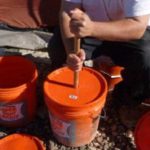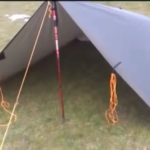- Frequently clean roofs, gutters, yards and landscape to eliminate combustible material.
- Have a a Survival Plan in place that includes a family communications plan.
- Keep a ladder that will reach the roof and high places in the house.
- Make sure you have at least 2 weeks supply of emergency foods, purified water and personal protection.
- Keep An Emergency Car Kit in your car at all times.
- Have a water plan – Keep a power hose with long range of use.
If your Home or Neighborhood is immediately affected…
- Remain calm. Listen to the radio or television for updates and evacuation information.
- Be prepared to evacuate immediately. Keep your Survival Kit both in your home and in your car—including food, purified water, emergency power, smoke-inhalation masks and appropriate tools.
- Wear protective clothing when outside – sturdy shoes, cotton or woolen clothes, long pants, a long-sleeved shirt, gloves and mask (or handkerchief).
- Have an arrangement for temporary housing at a relative or close friends. (Barring that, have a list of pre-designated community emergency centers.)
======================================================================
======================================================================
- Place a ladder against the house in clear view.
- Keep important papers, valuables and critical documents in a fire-proof container and have them ready to move at a moment’s notice.
- The most dangerous aspect of fires is smoke-inhalation. Make sure you have smoke masks and be ready to evacuate before smoke becomes a serious threat to breathing.
- Move flammable furniture into the middle of a room.
Post Fire Recovery Tips
- Do not try to return home unless cleared to do so. (Use local alert systems to stay informed.)
- Most Wildfires last several days. Be prepared to be away from your home for at least a week until the fire is officially cleared.
- If you have evacuated, do not reenter your home until fire officials say it is safe.
- For several hours after cleared from the event maintain a “fire watch.” Check for sparks and smoke in the house.
- If you detect heat or smoke when entering a damaged building, evacuate immediately.
- Avoid damaged or fallen power lines, poles and downed wires. Avoid all contact with electrical outlets and compromised power sources in your home.
- Follow public health guidelines for safe cleanup and removal of ashes, carbon-compromised and scorched materials.
- Try to minimize breathing dust particles and after-smoke.
- Use non-flammable cleaning materials.
- Discard any food, water or beverages that have been contaminated by smoke or scorched.
- Do not use any water source that you think may be contaminated.
- Avoid compromised appliances until proper professional evaluations have been made.
















